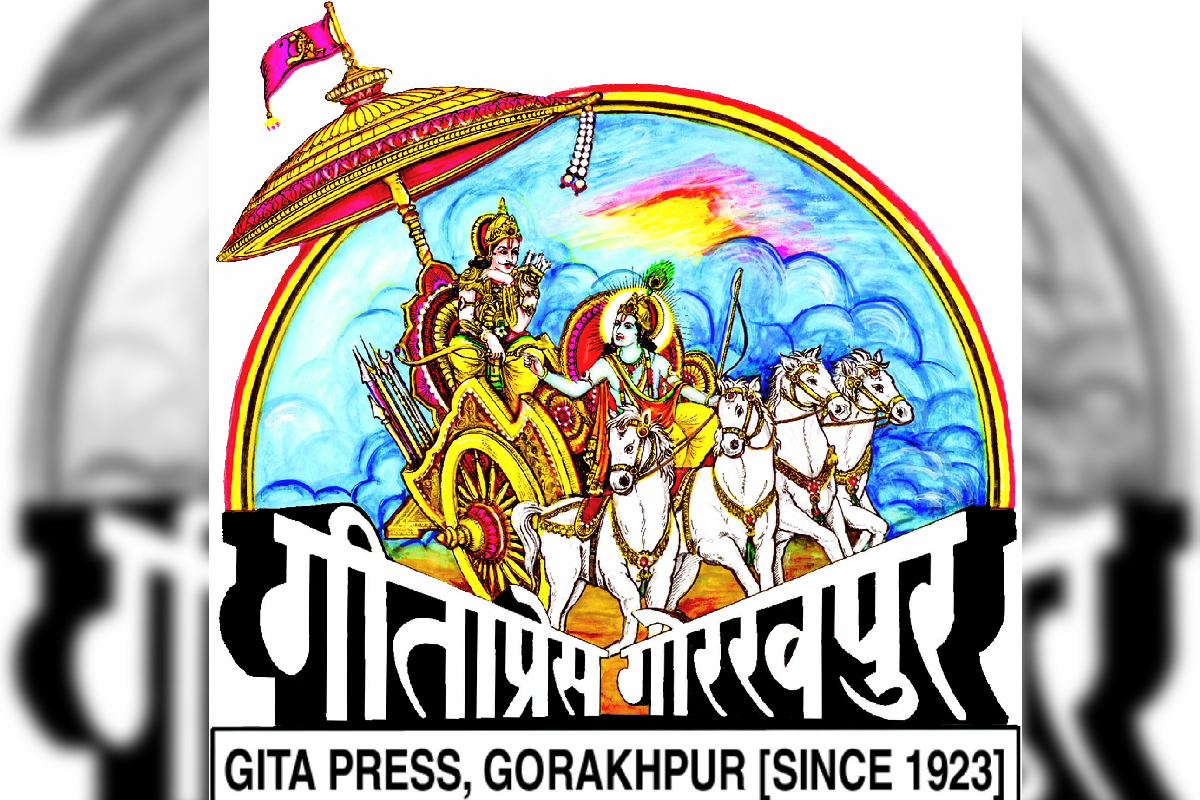NEW DELHI: The controversy surrounding the selection of Gita Press for the Gandhi Peace Prize has taken a new turn as the publisher has declined the accompanying ₹1 crore cash award. In a statement, Gita Press expressed its deep appreciation for being chosen for the prestigious honour but announced that it would not accept the monetary component of the award.
The decision to decline the cash prize is in line with Gita Press’ longstanding tradition of not accepting any form of donations. Lalmani Tripathi, the manager of Gita Press, stated, “We consider it a matter of great honour to receive the Gandhi Peace Prize. However, it is our principle to refrain from accepting any kind of donations, which is why the trustee board has decided not to accept the award in its monetary form. Nevertheless, we will certainly accept the award as a testament to the honour it represents.”
Gita Press extended its gratitude to Prime Minister Narendra Modi and the Union Culture Ministry for conferring the esteemed award upon them.
In recognition of its “outstanding contribution towards social, economic and political transformation through non-violent and other Gandhian methods”, Gandhi Peace Prize for 2021 will be conferred on Gita Press, Gorakhpur, reports @urvashikhona #news #GandhiPeacePrize2021 pic.twitter.com/mYgllvY8Ol
— The New Indian (@TheNewIndian_in) June 18, 2023
The jury, led by PM Modi, unanimously selected Gita Press as the recipient of the Gandhi Peace Prize. Prime Minister Modi, congratulating Gita Press, tweeted, “I congratulate Gita Press, Gorakhpur, on being conferred the Gandhi Peace Prize 2021. They have done commendable work over the last 100 years towards furthering social and cultural transformations among the people.”
I congratulate Gita Press, Gorakhpur on being conferred the Gandhi Peace Prize 2021. They have done commendable work over the last 100 years towards furthering social and cultural transformations among the people. @GitaPress https://t.co/B9DmkE9AvS
— Narendra Modi (@narendramodi) June 18, 2023
However, senior Congress leader Jairam Ramesh vehemently criticised the central government for awarding the Gandhi Peace Prize to Gita Press, drawing controversial comparisons.
The Gandhi Peace Prize for 2021 has been conferred on the Gita Press at Gorakhpur which is celebrating its centenary this year. There is a very fine biography from 2015 of this organisation by Akshaya Mukul in which he unearths the stormy relations it had with the Mahatma and the… pic.twitter.com/PqoOXa90e6
— Jairam Ramesh (@Jairam_Ramesh) June 18, 2023
Ramesh referred to the decision, made by a jury headed by Prime Minister Modi, as a “travesty” and likened it to awarding figures such as VD Savarkar and Nathuram Godse. He also pointed to a 2015 book authored by journalist Akshaya Mukul that reportedly reveals the contentious relationship between Gita Press and Mahatma Gandhi.
In response, Assam Chief minister Himanta Biswa Sarma lambasted the Congress party, accusing it of waging a campaign against India’s civilizational values and rich heritage.
With the win in Karnataka, Congress has now openly unleashed a war against India’s civilisational values and rich legacy, be it in the form of repeal of anti-conversion law or criticism against Geeta Press.people of India will resist this aggression and reassert our…
— Himanta Biswa Sarma (@himantabiswa) June 19, 2023
Sarma tweeted, “With their victory in Karnataka, the Congress has openly initiated an assault on India’s civilisational values and rich heritage. Whether through the repeal of the anti-conversion law or their criticism of Gita Press, the people of India will resist this aggression and assert our civilizational values with equal determination.”
भारत की गौरवशाली प्राचीन सनातन संस्कृति और आधार ग्रंथों को अगर आज सुलभता से पढ़ा जा सकता है तो इसमें गीता प्रेस का अतुलनीय योगदान है। 100 वर्षों से अधिक समय से गीता प्रेस रामचरित मानस से लेकर श्रीमद्भगवद्गीता जैसे कई पवित्र ग्रंथों को नि:स्वार्थ भाव से जन-जन तक पहुँचाने का अद्भुत…
— Amit Shah (@AmitShah) June 19, 2023
Several Bharatiya Janata Party (BJP) leaders also denounced Jairam Ramesh, labelling the Congress party as “Hindu-hating”. BJP spokesperson Shehzad Poonawalla criticised Shiv Sena (UBT) chief Uddhav Thackeray for aligning with the Congress party despite its alleged attacks on Hinduism, Hindutva, and even figures like Savarkar.
The controversy surrounding Gita Press’s selection for the Gandhi Peace Prize continues to ignite heated debates and exchanges between political parties, underscoring the deep divisions within Indian politics.

















